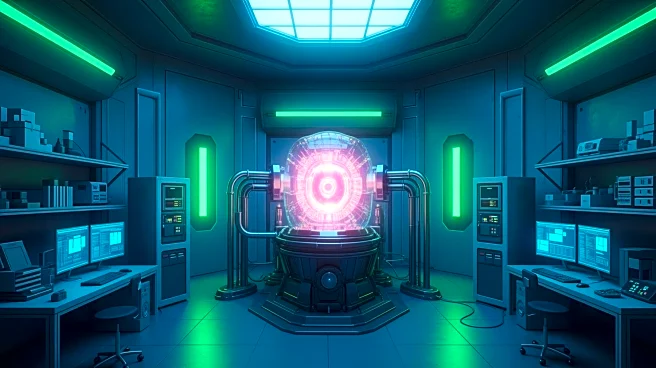What's Happening?
Chris Sacca's venture firm, Lowercarbon Capital, is initiating a second fund aimed at supporting nuclear fusion energy startups. This announcement was made during the SOSV Climate Tech Summit, as reported by Bloomberg. Lowercarbon Capital has previously
invested in leading fusion startups such as Commonwealth Fusion Systems and Pacific Fusion. The firm raised a $250 million fund dedicated to fusion energy in 2022. Despite the high costs associated with building fusion reactors, there is optimism among investors, including notable climate venture capitalists like Vinod Khosla, that a breakthrough in making fusion commercially viable is imminent. Commonwealth Fusion Systems, for instance, raised $863 million earlier this year, following a $1.8 billion Series B round four years ago. The size of the new fund has not been disclosed, but sources suggest it will surpass the previous fund.
Why It's Important?
The development of nuclear fusion technology holds significant potential for transforming the energy sector by providing a clean and virtually limitless power source. The continued investment in fusion startups reflects a growing confidence in the technology's future viability. If successful, nuclear fusion could drastically reduce reliance on fossil fuels, contributing to global efforts to combat climate change. The substantial financial backing from venture capitalists indicates a strong belief in the potential for technological breakthroughs that could make fusion energy commercially viable. This could lead to significant shifts in energy policy and industry practices, with implications for energy security and environmental sustainability.
What's Next?
As Lowercarbon Capital raises its second fund, the focus will likely be on identifying and supporting promising fusion startups that can advance the technology towards commercial viability. The success of these ventures could attract further investment and accelerate the development of fusion reactors. Stakeholders, including governments and energy companies, may begin to consider fusion as a viable component of future energy strategies. The progress in fusion technology could also prompt regulatory bodies to establish frameworks for its integration into the energy grid, ensuring safety and efficiency.
Beyond the Headlines
The pursuit of nuclear fusion technology raises ethical and regulatory questions about energy production and distribution. As fusion technology advances, there will be discussions about equitable access to this new energy source and its impact on existing energy markets. Additionally, the environmental benefits of fusion must be weighed against the challenges of reactor construction and waste management. Long-term, successful fusion technology could redefine global energy dynamics, influencing geopolitical relations and economic structures.

















